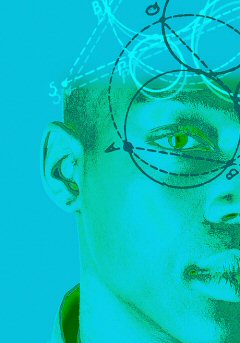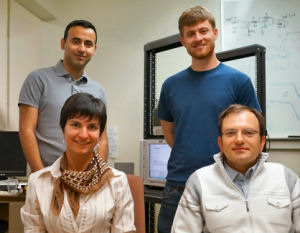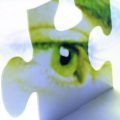
Neuroscientists at Washington University School of Medicine in St. Louis have found they can predict whether test subjects will succeed or fail at a game by scanning their brains. “Before we present the task, we can use brain activity to predict with about 70 percent accuracy whether the subject will give a correct or an incorrect response,” says lead author Ayelet Sapir, whose study appears in the Proceedings of the National Academy of the Sciences.
The game, which involved discriminating the direction of a field of moving dots on a screen, was preempted with a hint eleven seconds before the game started. The hint consisted of an arrow pointing to where the moving dots were likely to appear. The dots were visible for only one-fifth of a second, making them easy to miss if a subject was not paying attention to the right area.
The researchers found that based on the brain activity patterns that reflected whether the subjects used the hint or not, they could frequently predict whether a volunteer’s response would be right or wrong before the volunteers even had a chance to try to see the dots.
The findings suggest that the volunteers don’t use the hint the same way in every trial. The researchers speculate that some of the brain signals they detected might be signs of the brain’s struggle to cope with an ambiguity built into the test: the volunteers knew the hint was only accurate 80 percent of the time. “Whether the hint is accurate or not was determined by the computer’s random number generator, and the volunteers were not going to be able to beat that,” said co-researcher Giovanni d’Avossa. “But regardless of how hopeless it was to try to outguess the computer, some of our data suggest that the brain may still have been trying to do just that: to figure out a formula or a rule based upon which it could predict whether a hint was valid and should be trusted.”
The researchers base their speculation on a spike in brain activity found in the rewards system in the frontal lobes. “The rewards system is involved in regulating behavior based on previous experiences of rewards and punishments,” d’Avossa said. “It also may help us build up predictions of what the world should be like and how certain events go together. When it works well, the world makes sense to you.”
This is in contrast to patients with mental illness who perceive the world as alien and unpredictable, and in whose brains the reward systems’ predictive abilities are often damaged or missing. Researcher Maurizio Corbetta concluded by noting that our perceptions of the outside world depend as much on the brain’s internal responses as external stimuli. “Regardless of how the results are interpreted, Corbetta concluded, the study clearly showed that visual perception not only depends on the quality of sensory signals but also on the variability of internal signals.”












![billlie 'the billage of perception: chapter two' album photocard [restock 1/15] picture](/store/img/g/dFwAAOSwGLZjxJ0y/s-l225/billlie-the-billage-of-perception-chapter-two-albu.jpg)





Comments are closed.